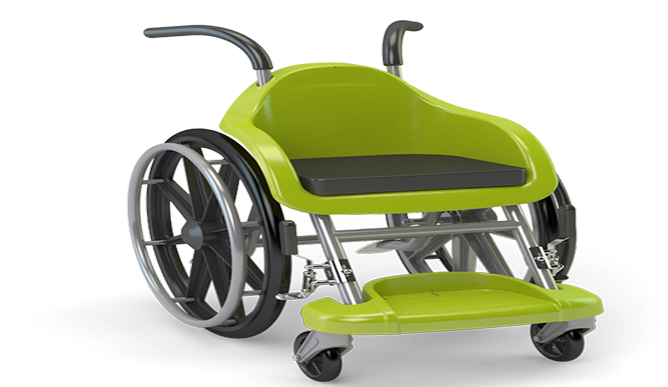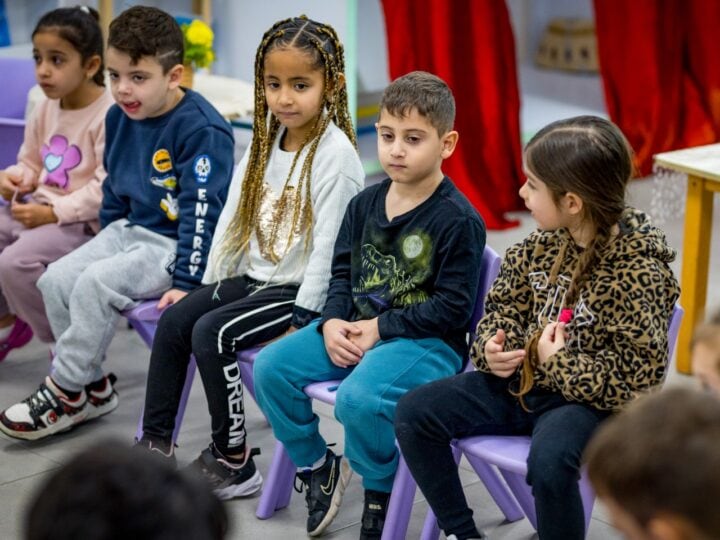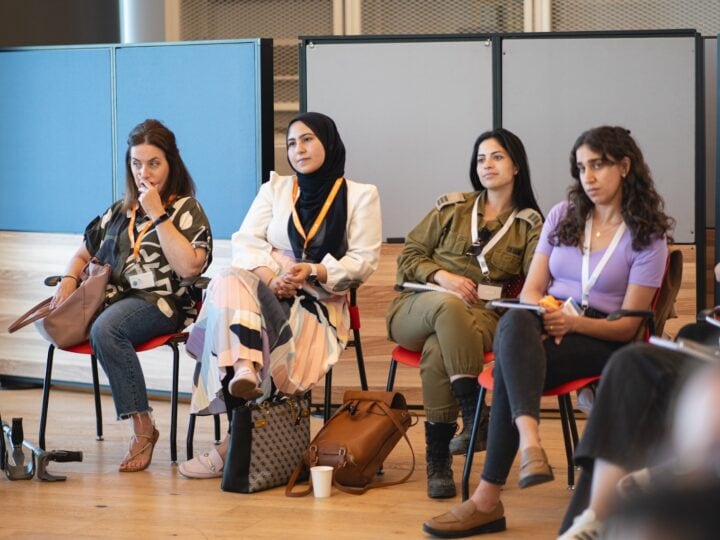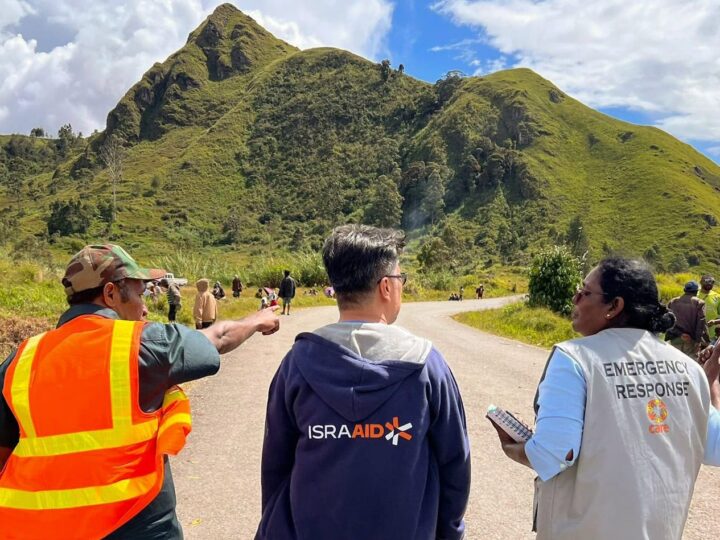Colorful, lightweight plastic wheelchairs designed and made in Israel are being distributed through charitable organizations to needy children in Israel, the Palestinian Authority territories, Peru and Tajikistan thanks to the vision of Pablo Kaplan, a former executive vice president of Israel’s multinational company Keter Plastic.
As ISRAEL21c reported almost two years ago, Kaplan and his life partner and former Keter coworker, Chava Rotshtein, undertook a humanitarian mission – Wheelchairs of Hope – to produce innovative wheelchairs designed especially for mobility-challenged children in developing companies.
The inexpensive lightweight chairs, made of rugged plastic in kid-pleasing colors, can handle off-road conditions, require no maintenance and are simple to assemble.
Through their contacts with the World Health Organization (WHO) in Switzerland, the International Committee of the Red Cross (ICRC) and United Nations Children’s Fund (UNICEF), they learned that some 7 million children are in need of a wheelchair.
Israeli companies Ziv-Av Engineering Group and Nekuda Design Management found a way to produce the chairs for only $100 apiece. Prototypes, printed on a giant three-dimensional printer, were tested and refined by staff at ALYN rehabilitation hospital for children in Jerusalem. The patent was provided through the pro-bono assistance of Reinhold Cohn law firm.
On Wednesday, December 7, ALYN is hosting a ceremony marking the first shipment of 250 Wheelchairs of Hope to children under the age of nine in Israel and PA territories in cooperation with the WHO, Israel’s Foreign Affairs Ministry, UNICEF, the Israeli Innovation Authority, USAID and rehabilitation organizations including Beit Issie Shapiro in Ra’anana.
Some of these wheelchairs are earmarked for Syrian refugee children.

In addition, more than 600 Wheelchairs of Hope are being delivered to disabled children in Peru and Tajikistan through a philanthropic foundation and the WHO.
Organizations including the ICRC are interested in having the chairs on hand for distribution following emergencies and natural disasters, and to distribute them to needy children in countries such as Ethiopia and the Dominican Republic.
“The idea is not the chair itself, but the mobility and independence it gives to children who would otherwise not have any access to school or community life,” said Kaplan.
















